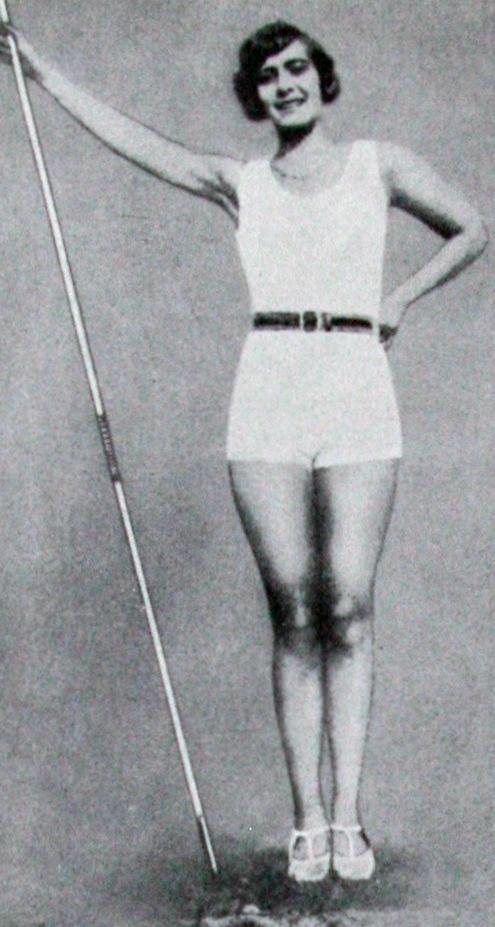Food which was easily digested one day makes them sick the next. The slimmer they get, the more loosely hangs the skin on their body. They get looks from men which they didn’t get before. They used to be morbidly obese and super visible, yet completely invisible.
They used to have to shout in order to be heard at work. Today, people ask their opinion. It is provoking. And it is nice. It feels ambivalent, and it is a challenge. And if everything used to revolve around food before, it certainly does so now.
In her doctoral thesis, Karen Synne Groven at the University of Oslo has interviewed 22 women who have been through the bariatric surgery gastric bypass, in which the stomach is reduced significantly and part of the small intestine is re-routed in order to reduce the intake of food.
The interviewees are between the age of 24 and 54. Most of them were interviewed twice, first about a year after the operation and then about 2.5-4 years after surgery.
Whereas other studies on the subject have concluded that this type of surgery has led to an increase in quality of life for the majority of the patients, and have had a tendency to group these operations as either successful or unsuccessful, Groven has concluded somewhere in between.
“This is both a success and a failure, it is not either/or. Some things get better, but new problems arise. And how women experience these problems vary significantly.”
A women’s problem?
Global figures show that approximately 70 % of those who are characterised as morbidly obese are women, and women make up 70-80 % of the bariatric surgery patients.
Groven made phone calls to various Norwegian hospitals and found that the Norwegian figures to a large extent correspond with this global trend. One of the surgeons she spoke with characterised morbid obesity as a women’s problem.
But there’s a lot we don’t know about these figures, Groven emphasises.
“More and more men have weight loss surgery. We must be careful not to label women as this and men as that. Perhaps more women go through surgery because we think of it as more problematic with obese women than men?”
Diets are for women
The target group for the commercial campaigns promoting bariatric surgery is women, and the dieting culture which exploded in the 1960s was also directed at women.
The diet campaigns kept repeating that women were too fat, ate too much, ate the wrong food and were lazy. The size of men’s bodies hasn’t been an issue in the same way.
“Although men are under pressure to be fit, people talk about women in a different way when they are fat,” says Groven.
In the 70s and 80s the focus shifted from that of being slim to being fit. But along with the work-out boom came the overweight wave.
In 1990 morbid obesity was classified as a disease in the International Classification of Diseases, and in 2000 the World Health Organization described obesity as a global epidemic.
“The need for self-discipline and self-control is like a recurrent theme through the development. So much so, in fact, that self-control has become a symbol of modern femininity,” says Groven.

New body, new acceptance
Going through gastric bypass surgery is like going through a radical change of both the internal and external body.
But where the surrounding world sees a slimmer body, a sign of success, the surgery involves a number of smaller, less visible problems.
“Becoming slimmer and lighter is mostly perceived of as positive. At the same time it is ambivalent, since people start to behave differently towards the women after they’ve had surgery. People are friendlier than before, and this may feel extremely provoking. And people often ask very invasive questions concerning the woman’s radical weight loss.”
Some of the women experienced increased self-esteem. They dared to rise to speak in a different manner than before, and people listened to what they had to say at work.
“Being heard is a good thing. But it was nevertheless also a grief, as they realised that they needed surgery in order for it to happen.”
The women also felt some ambivalence towards their “new” naked body. And not least: when do you tell others about the bariatric surgery?
Many kept telling white lies and just told people that they had been on a diet, as they were ashamed to have gone through an operation of this kind.
See also: Eternal witch-hunt for the fat body
Loose skin
The loose skin which is a common consequence of rapid weight loss is often a big, sometimes unforeseen problem.
“It is given little focus before the operation; patients are often told that this is something that can be fixed afterwards. But it is not so easily fixed, and the women are not prepared for the challenge of having to live with the loose skin,” says Groven.
In order to get the expenses covered for skin surgery, the women must reach a certain level of weight reduction, and then keep a stable weight. Moreover, skin removal may also involve risk, and not everything can be removed. Some were reluctant to have surgery which could involve risk in connection to future pregnancies.
The loose skin creates a distance to the new body. Some people talk about it in third person, as if it is not a part of themselves. They used to have tight skin, some were proud of their breasts. Now everything is saggy.
“They think of the saggy skin as unattractive, uncomfortable and unfeminine,” says Groven.
Decreased quality of life for some
Five of the 22 interviewees described their quality of life as worse after the operation. For them, life became worse due to stomach and intestine problems which became chronic after surgery.
Whereas the other 17 women talked about surgery as a watershed in terms of becoming more physically active, these five felt that they had no energy at all.
One of the women was so sick after surgery that she needed another operation. First the doctors didn’t believe her. They found nothing when they examined her and concluded that her reaction was psychological.
Due to intense pains the woman and her General Practitioner kept insisting, and she was given new surgery which showed that there were problems with the scar tissue following the first operation.
Focus on food
Even those who were eager to change their habits in terms of food and working out experienced challenges concerning food and eating.
Eating too much, too little, the wrong food or at the wrong time of the day could all result in sudden episodes of stomach/intestine problems, so-called “dumping”. Some of the women experienced passing episodes of nausea, tiredness and dizziness, whereas others experienced intense quivering.
“I am a physiotherapist myself and wanted to study the women’s experiences with physical activity before and after the operation,” says Groven.
“When I asked them about physical activity the women spoke a little about that before returning to talking about food. This is not something that I have measured scientifically, but it is my impression that the focus on food becomes even bigger after surgery. Everything revolved around food.”
Some of the women who had struggled with over-eating before the operation relapsed and started to over-eat after surgery as well, even though they became sick with dumping.
The eating disorder is not gone, one of the women explained. Others commented that their heads had after all not been in surgery.
Some developed so-called “grazing”. They ate very little at a time, but they ate all the time instead. Dumping was used as a verb. Testing or ignoring the eating limits was called “to dump”.
Research claims that patients may avoid dumping as long as they follow the dietary advices. But according to Groven things are much more complex and unpredictable in reality.
“It is reasonable to ask, I think, whether the eating disorders that some of the women develop after surgery are diseases, or if they may be understood as normal changes as a result of the operation,” says Groven.
See also: Sound focus on health or eathing disorder in disguise?
Being fat is not OK
None of the 22 women regret having the operation.
“They say they would have done the same today and that they had no choice considering their life before surgery. Some said that the pains were a small price to pay.”
Groven’s analyses emphasise that the way in which women experience their own body is closely connected to society’s perception of the ideal female body. The way society regard obese women limit the women’s scope of action.
The interviewees felt stigmatised before the operation, and were very preoccupied with the way in which media and science represented weight loss surgery and its effectiveness.
“They are living with a body which is not accepted by society, and they are constantly judged from their size. The message from the media and medical science is that they are likely to get cancer or diabetes unless they lose weight and the surrounding world regards their obesity as self-inflicted. Some have children and are afraid to die and leave them alone,” says Groven.
“But is it not a fact that these women have a higher risk of getting serious diseases as a result of obesity?”
“Yes. It is well documented that morbid obesity may cause serious diseases. But on the other hand we know very little about the long-term effects of bariatric surgery and what diseases one may develop after such surgery.”
10 years after
Groven’s research is a rare, qualitative study of women’s experiences in a wealth of medical research and statistics concerning bariatric surgery. According to Groven it is particularly grave that we are lacking longitudinal studies which can provide in-depth analysis of the patients of weight loss surgery and their situation.
“I wonder what happens after five, ten, twenty years. What’s the situation with food and eating then? The loose skin? Those who wanted to get pregnant?”
In her new post doc position at the Faculty of Medicine at the University of Oslo, Groven will focus on children and obesity. Moreover, she will follow up her PhD project and look at patients of bariatric surgery 3-10 years after the operation.
Translated by Cathinka Dahl Hambro
Karen Synne Groven recently defended her PhD thesis Striving for healthy lives, striving for social acceptance: Women's experiences following gastric-bypass surgery at the Institute of Health and Society, The Faculty of Medicine, University of Oslo.
She works as an associate professor at the Department of Physiotherapy, Oslo and Akershus University College of Applied Sciences.
Her thesis comprises four articles which are written in collaboration with Gunn Engelsrud, Professor at the Norwegian School of Sport Sciences and Målfrid Råheim, Professor at the University of Bergen.



